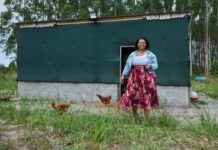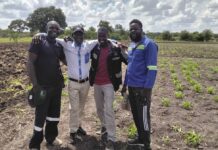In a significant step toward improving food security and climate resilience in Liberia, the Africa Rice Center (AfricaRice) and the Central Agricultural Research Institute (CARI) have introduced ten new upland rice varieties specifically bred to withstand the growing challenges posed by climate change.
These climate-resilient rice varieties were officially showcased during a high-level field event in Bong County, attracting policymakers, scientists, development partners, and local farmers.
The varieties—developed through rigorous multi-location trials under the CGIAR Research Initiative on Climate Resilience—are tailored to Liberia’s upland rice ecosystems, which are particularly vulnerable to erratic rainfall, prolonged droughts, and soil degradation.
The ten upland varieties demonstrate a combination of traits that are crucial for smallholder farmers operating under climate stress. These include early maturity, high yield potential, and resistance to common pests and diseases. Importantly, several of the varieties are drought-tolerant, a key characteristic for upland rice farming where irrigation is often not feasible.
“This initiative is a vital contribution to national food security,” said Dr. Inoussa Akintayo, AfricaRice Country Representative. “We are helping build a resilient rice sector in Liberia by equipping farmers with varieties that can thrive even under challenging climatic conditions.”
The introduction of these improved rice varieties is part of a broader strategy to enhance Liberia’s rice self-sufficiency and reduce dependency on expensive imports. Liberia currently imports about 70% of its rice, the nation’s staple food, making it vulnerable to international market shocks and price volatility.
Officials from Liberia’s Ministry of Agriculture applauded the initiative and expressed confidence that the collaboration between AfricaRice and CARI will empower Liberian farmers to sustainably increase rice production and adapt to the realities of a changing climate.
CARI and AfricaRice plan to scale up seed production and distribution through local seed systems, ensuring that farmers across Liberia can access and benefit from the new varieties. Farmer field schools, training, and extension services will accompany the rollout to boost adoption and maximize impact.
By combining scientific research, local partnerships, and farmer engagement, the introduction of these ten climate-resilient upland rice varieties marks a pivotal moment in Liberia’s agricultural transformation and a model for similar interventions across West Africa.








